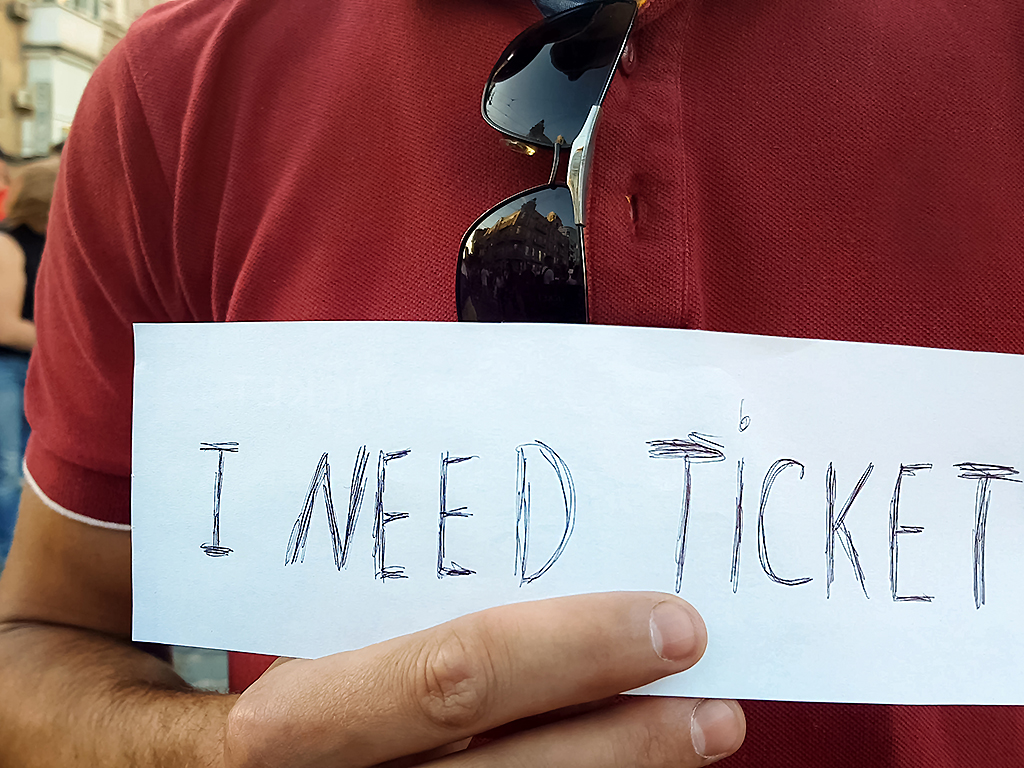Over the last couple of years, I’ve become something of a student of the event ticket industry, largely because buying tickets remains such a frustrating and maddening consumer experience.

The current tsunami of kvetching began with the final Tragically Hip tour in the summer of 2016, when over 2 million people competed for 400,000 tickets. Fans who were unsuccessful stroked out when they discovered these tickets for sale on the secondary market for many, many times their face value.
READ MORE: Rolling Stones announce rescheduled concert dates, Mick Jagger back in training after surgery
Cue the outrage. And cue the populist response of politicians.
First up was Sophie Kiwala, MPP for Kingston and the Islands with Kathleen Wynne’s Ontario Liberals. She put forth a bill that would have outlawed bots (high-speed ticket-buying software) and required clear disclosure of the original selling price as well as the imposition of a markup restriction of 50 per cent on tickets resold by brokers. But before the law could be enacted, the Wynne government fell. Meanwhile, Alberta and B.C. have pieced together their own ticket-selling regulations.
When Doug Ford’s PCs came to power in Ontario, they put the brakes on portions of the new Ticket Sales Act, including the 50 per cent price increase cap, pending further study and consultation.
A series of proposed legislative amendments to the Ticket Sales Act were included in the 2019 Ontario budget. Having examined these new proposals, I have a few questions.
Increased transparency
- Canadian man dies during Texas Ironman event. His widow wants answers as to why
- ‘Sciatica was gone’: hospital performs robot-assisted spinal surgery in Canadian first
- Honda’s $15B Ontario EV plant marks ‘historic day,’ Trudeau says
- Several baby products have been recalled by Health Canada. Here’s the list
When any of us tries to buy tickets to a concert, a sporting event or a theatre production, we don’t know how many tickets are actually up for sale to the general public. Sure, the posted capacity of, say, the Scotiabank Arena in Toronto is 19,800. But that’s not how many tickets go on sale for a concert in that venue. From that number, we need to subtract holdbacks (tickets reserved for the performer, the record label, the promoter, the venue, any sponsors, etc.), tickets reserved for members of the artist’s official fan club, tickets set aside for promotions like radio contests, VIP seats like American Express’ Front of the Line members and so on.
So how many of those theoretical 19,800 tickets are made available when things go on sale to the general public? We don’t know.
READ MORE: BTS performs as The Beatles, fans go nuts on ‘Colbert’
Under the proposed new rules, primary sellers such as Ticketmaster would be required to provide specific information about how many tickets are made available for sale. That includes pre-sales, adjusted numbers as new batches of tickets become available and the number of exclusive sales (i.e. American Express Front of the Line tickets), right up until showtime. The goal, says the government, is to give the public a clearer picture of their options when buying tickets.
Ticket sellers have been vehemently opposed to revealing these sorts of figures, saying that the number of available tickets is always in flux, expanding and contracting based on variables such as holdback requirements and the amount of space taken up by an act’s staging and gear. I’m guessing they’re also concerned about how the public might react when it finds out how many tickets are out of reach from the get-go.
Question: Will this part of the legislation fly? Or will ticket sellers, promoters and venues push back hard?
No more resale price cap
The 50 per cent cap on the price of resale tickets has been scrapped. The government recognizes that no one has a right to go to an event and that there’s nothing special about these tickets that requires meddling in a free and open marketplace. Hey, I’d love it if there was a cap on the price of gas, but we all know that’s never going to happen. How about price controls on certain food staples? Nope. Why should event tickets be any different? Putting a maximum price on a ticket will only distort the market and drive consumers to risky, unregulated and possibly fraudulent transactions with unscrupulous scalpers.
Question: This is the right move, but how will they sell it politically?
Transferability
There are proposals that will allow the government to regulate the sticky issue of transferability. If, for example, I have tickets to a show that I can’t attend, the new proposed regs say that there shouldn’t be any restriction on me giving or selling those tickets to someone else. In the age of digital tickets, that can be tricky so the new rules would allow consumers to obtain old-fashioned paper tickets. The right to paper tickets would be enshrined in the law.
Question: A little old-school, but might companies like Ticketmaster come up with a better 21st-century idea? Yes. In fact, they’re already working on some new technology called SafeTix, which seems to have some promise.
READ MORE: ‘John Wick: Chapter 3 — Parabellum’ review
Increased penalties
To put some teeth into the new regulations, there are proposed fines running from $10,000 to $25,000.
Question: Will this ensure compliance? Will it weed out some of the bad actors in the ticket-selling space? And who in the government will be responsible for handling complaints and, ultimately, fining people?
Putting bums in seats has always been a tricky business, and you can bet other jurisdictions are looking at Ontario to see how things work out.
—
Alan Cross is a broadcaster with 102.1 the Edge and Q107 and a commentator for Global News.
Subscribe to Alan’s Ongoing History of New Music Podcast now on Apple Podcast or Google Play






Comments